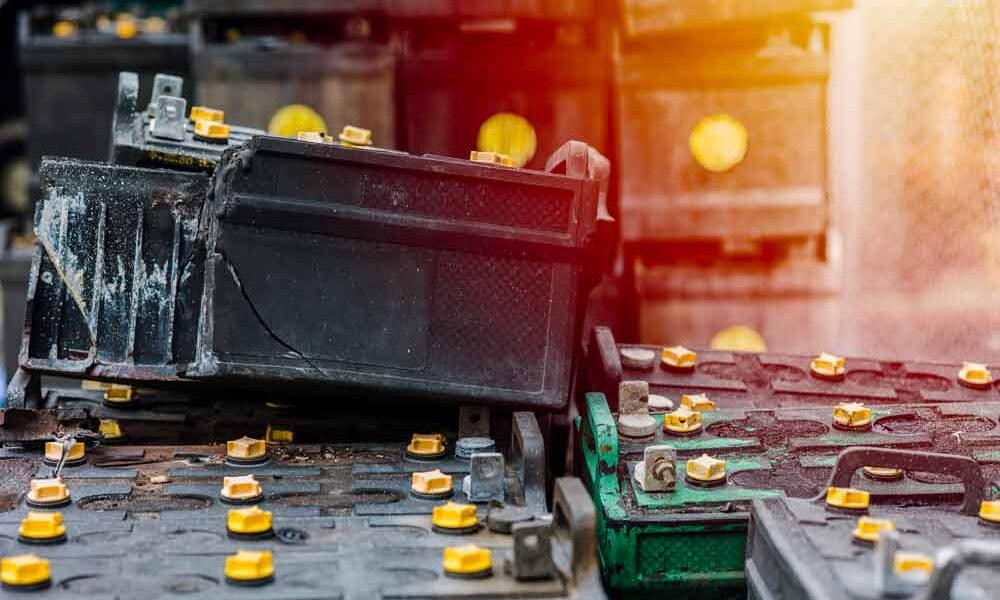GME Recycling
Do lead acid batteries have a future?
The future of electric vehicles is a topic that has been gaining significant attention in recent years. With the world’s increasing focus on reducing carbon emissions and the push towards sustainable transportation, it’s no surprise that electric vehicles are becoming more prevalent. However, as electric vehicles continue to grow in popularity, there is a need to consider the role of
Where to buy lead batteries
Lead battery recycling is a critical process that has gained significant attention in recent years. As the world becomes more environmentally conscious, it’s essential to understand the importance of recycling lead acid batteries. These batteries are commonly used in vehicles, power backups, and other equipment. However, they can cause severe environmental damage if not disposed of properly. In this article,
Investing in Recycling Technology: A Smart Move for Industry Leaders
In today’s world, where sustainability and environmental consciousness are becoming increasingly important, investing in recycling technology is not just a responsible choice but also a smart move for industry leaders. This article will explore the benefits of investing in recycling technology for both large companies and entrepreneurs, with a focus on key areas such as lead-acid batteries, aluminum and metal
The Environmental Impact of Metal Recycling
Scrap metal recycling is a great way to save the planet and make some money. It’s an exciting process that turns trash into treasure. You may not realize it, but there are tons of scrap metal lying around your house and neighborhood waiting to be collected. Recycling scrap metal has many benefits that can help reduce the environmental impact of
Cutting-Edge Solutions for Eco-Friendly Lead Acid Battery Disposal
In an age where environmental consciousness is paramount, the disposal of lead-acid batteries has become a matter of grave concern. These batteries, commonly found in vehicles, uninterruptible power supplies (UPS), and various industrial applications, contain hazardous materials that pose a significant risk to our ecosystem. Fortunately, there are cutting-edge solutions available for eco-friendly lead-acid battery disposal that not only mitigate
Sourcing Spare Parts for Recycling Plants: A Comprehensive Guide
In this comprehensive guide, we will provide recycling plant operators with valuable insights on sourcing spare parts for their equipment. Operating a recycling plant is a crucial endeavor, and ensuring the availability of quality spare parts is essential for maintaining efficiency and sustainability in the long run. The Importance of Quality Spare Parts Efficiency and sustainability are the cornerstones of
Innovation in Metal Production: Impacts and Insights
In the metal production sector, innovation is driving transformative changes, influencing CEOs and entrepreneurs in the industry. As technology advances, so too does the metal production sector, affecting everything from the way materials are sourced to the final product that reaches consumers. This article explores the impacts and insights surrounding innovation in metal production and how it is revolutionizing the
Streamlining Lead Battery Disposal for Large Corporations
In this article, we’ll delve into the world of lead-acid battery disposal for large corporations, exploring the correct methods, regulations, risks, benefits, and sustainable alternatives. At GME Recycling, we are committed to sustainable circular models and meaningful innovation. With over 40 years of experience in non-ferrous recycling, we’ve designed and built more than 25 plants across three continents, recycling over
The Evolution of Lead-Acid Battery Recycling
Lead acid batteries, often referred to as Pb batteries, are a common element in our daily lives. They can be found in vehicles, emergency electronic equipment, and many other applications. But what happens to these batteries when they reach the end of their useful life? In this article, we will explore the process of lead acid battery recycling and the
Advanced Techniques for Recycling Metal Parts
In today’s world, where sustainability is at the forefront of our concerns, metal recycling has become an essential aspect of preserving our planet’s resources. Recycling metal parts not only reduces the demand for virgin raw materials but also minimizes the environmental impact of metal production. In this article, we will delve into advanced techniques for recycling metal parts and explore










